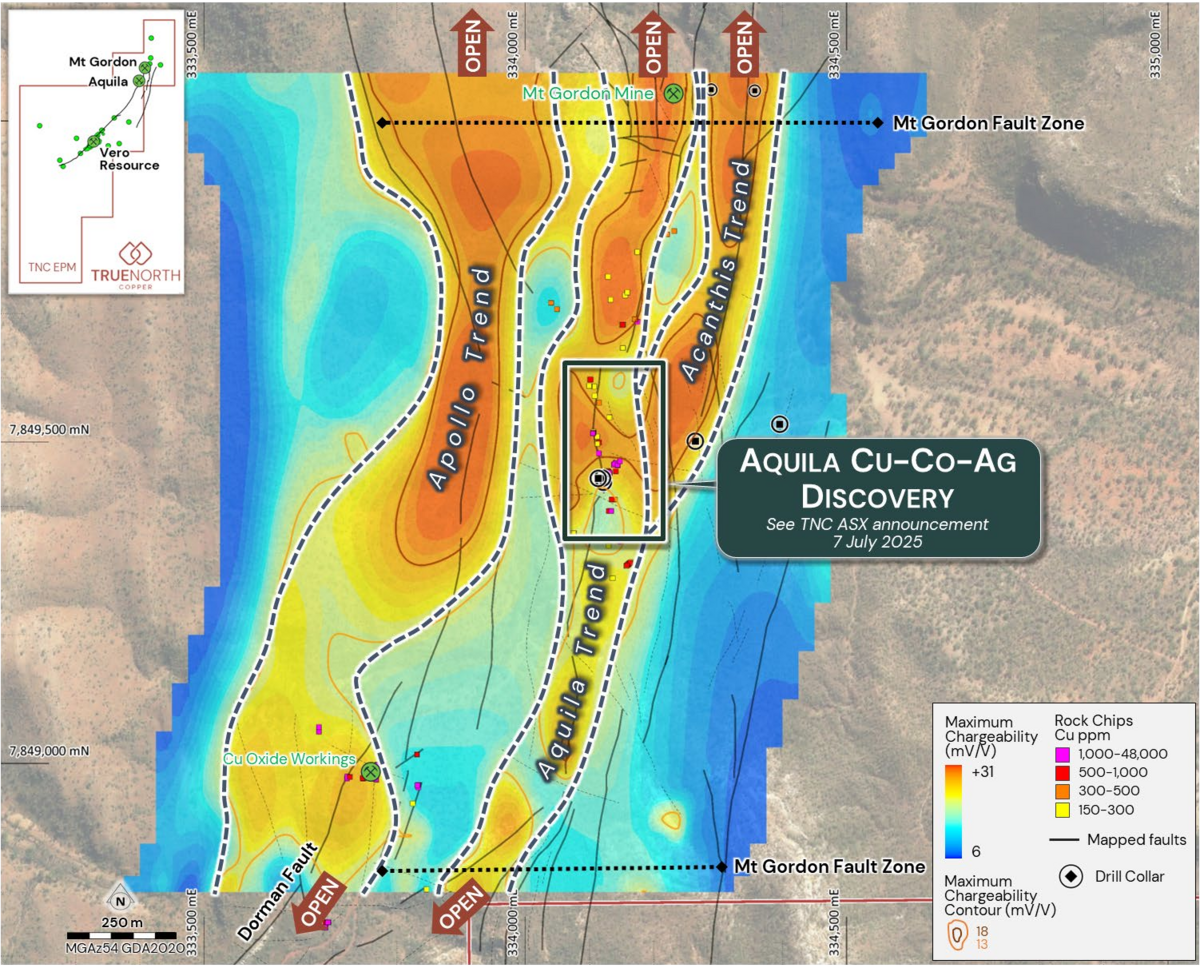True North Copper expands Aquila to 1.3km with new IP targets; drilling underway
Konrad Forrest

26 August 2025 | Cloncurry, QLD – True North Copper (ASX:TNC) has confirmed a major step-out at its Aquila Cu-Co-Ag discovery within the Mt Oxide Project, with an infill and extension IP survey growing the geophysical trend from ~250m to >1.3km and defining multiple drill-ready targets. RC drilling is underway.
Key points
-
Discovery footprint enlarged: New IP work outlines a continuous chargeability/conductivity corridor now exceeding 1.3km strike, coincident with surface copper-cobalt-silver mineralisation.
-
Three parallel trends defined: Aquila, Apollo and Acanthis show high-order IP responses, several comparable to or stronger than the anomaly that led to the Aquila discovery.
-
Follow-up drilling in motion: First-pass RC completed at the southern Apollo trend; systematic step-out drilling being planned along strike and at depth on the Aquila trend. Assays from recent Cloncurry programs are pending.
-
High-grade reference hits at Aquila (July):
-
145m @ 0.75% Cu, 0.12% Co, 2.9 g/t Ag from 28m, incl. 53m @ 1.18% Cu (MOX232)
-
30m @ 2.45% Cu from 20m, incl. 10m @ 5.31% Cu (MOX233)
-
16m @ 1.25% Cu from 163m (MOX231).
-
-
District scale emerging: Aquila sits ~4km from TNC’s Vero resource (15.03Mt @ 1.46% Cu; 9.15Mt @ 0.23% Co), reinforcing Mt Oxide as a developing multi-deposit copper hub.
Managing Director Bevan Jones said the rapid follow-up has transformed Aquila from a single anomaly into a “potential multi-kilometre-scale copper-cobalt-silver system,” adding that the data-driven approach used to make the discovery is now guiding an aggressive, systematic drilling program across the newly defined extensions.
Next steps
-
Complete pad preparation and permitting to step-out test high-priority IP targets north and south of the discovery zone, with initial holes up to ~200m depth.
-
Integrate 3D IP models, mapping and geochem to refine ore-shoot positions; continue RC drilling and consider deeper follow-ups as results are received.
